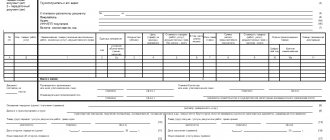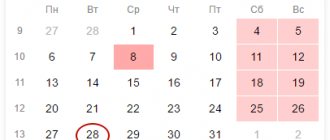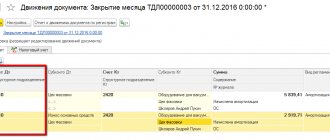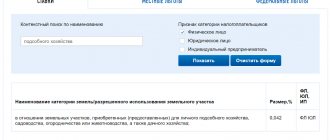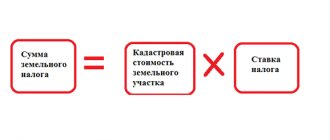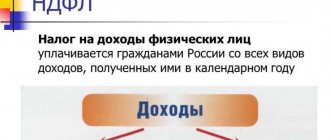Home / Taxes / What is VAT and when does it increase to 20 percent? / Exemptions and benefits
Back
Published: 04/23/2018
Reading time: 10 min
0
61
To reduce the tax burden, the state has provided various benefits, including for the payment of VAT.
- VAT and benefits
- Sales of goods and services
- Organizations and entrepreneurs
- Operations
- What are benefit codes and what types are they?
- General conditions for applying benefits
- Penalties
Dear readers! To solve your problem, call hotline 8 or ask a question on the website. It's free.
Ask a Question
Application of VAT benefits
It seems possible for any company or individual entrepreneur to apply existing VAT benefits if they meet the requirements, which are conditionally divided into 2 groups:
- general conditions applicable to all organizations;
- additional, depending on the benefit in question:
- If a company's activities are subject to compulsory licensing, it must have one in order to receive benefits. If a license is not obtained, VAT is paid under general conditions. Federal Tax Service employees explained that the opportunity to receive VAT benefits is lost from the date of termination of the license. But if the organization began the process of extending it in advance (if not, the benefits definitely do not apply), but did not manage to extend it due to circumstances beyond its control, while continuing socially significant work, the benefit is retained.
- When an organization combines several forms of income, one of which is entitled to a benefit, it keeps records of VAT-related transactions for each of them separately.
Beneficiaries will remain obligated to:
- issue an invoice,
- fill out purchase and sales registers,
- record incoming and outgoing invoices,
- submit a VAT return to the Federal Tax Service.
Special requirements for invoice:
- the amount of tax is not indicated,
- it is written “Without tax (VAT)”.
Operations for which issuance of an invoice is not required:
- sale of shares (except for the services of brokers and intermediaries);
- operations from the list of Art. 149 of the Tax Code of the Russian Federation, committed by banking institutions, insurance companies and municipal pension funds.
If the requirements are not met, the company will be forced to pay tax. Section 9 of the VAT return must contain information about all preferential transactions, including the special codes assigned to them.
https://youtu.be/76bf9y2TZkI
Who Needs Confirmation of Receipt of Benefits
Let me remind you that the Tax Code provides for four objects of VAT taxation:
- Sales of goods, works, services on the territory of the Russian Federation, transfer of property rights.
- Transfer of goods on the territory of the Russian Federation, performance of work, provision of services for one’s own needs, the costs of which are not taken into account when calculating corporate income tax.
- Carrying out construction and installation work for own consumption.
- Import of goods into the territory of the Russian Federation.
According to the Plenum of the Supreme Arbitration Court of the Russian Federation in paragraph 14 of Resolution No. 33 of May 30, 2014, tax benefits for VAT are (not subject to taxation and notification of the tax authority) the implementation of:
- food products produced by canteens of general educational and medical organizations and sold for them, including food products produced for them by public catering organizations (clause 2, paragraph 5, article 149 of the Tax Code of the Russian Federation);
- incl. transfer for one's own needs of religious objects, religious literature according to the list of the Government of the Russian Federation by religious organizations, including the conduct of religious activities (clause 3, paragraph 1, article 149 of the Tax Code of the Russian Federation);
- goods, works and services, except intermediary ones, produced and sold:
Documents confirming the right to apply VAT exemption are submitted by payers at the request of the tax authority at the place of registration. If there is no such requirement, it is not necessary to submit them along with the VAT return (subclause 1.11 of Article 22 of the Tax Code).
The tax inspectorate has the right to request documents from the organization during a desk audit to confirm the application of these benefits.
Based on the information contained in the Register submitted by the taxpayer, the tax authority, in accordance with Article 93 of the Code, should request documents confirming the validity of the application of tax benefits. For the purposes of this letter, documents mean a set of documents confirming the validity of the application of tax benefits for individual transactions (hereinafter referred to as the Documents).
This is important to know: Do individuals pay VAT?
The preparation of documentation is associated not only with the legislative regulation of their legal viability. It is important to understand here that there are many types of these papers.
But this rule does not apply to single pensioners, disabled people, minor orphans, large families (living in public housing). The main role of a document is precisely to fix something on a medium. And in this case, it is possible to transfer facts and information between people or even generations. That is why documents have been used in everyday life for many years and have not yet come up with a worthy replacement for them.
Nuances of applying the main VAT benefits
Main VAT benefits:
- to conduct transactions as an intermediary;
- for the sale of goods by public enterprises to people with disabilities;
- for the sale of medicines and medical services;
- for the provision of services in the educational field;
- to apply for a loan.
VAT benefits for conducting transactions as an intermediary. When carrying out such operations, a benefit can be used in relation to the product, but the intermediary himself, having received a monetary incentive for his work, pays VAT on it on general terms. Unless the essence of the operation was:
- leasing space to foreigners and foreign companies accredited in the Russian Federation;
- sale of medicines on a closed list;
- provision of ritual services, registration of a grave or sale of ritual items according to a closed list;
- sale of folk art products crafts, the value of which has been proven and samples of which have been registered by law (excise goods do not count).
- (It is meant that in the above cases, VAT is not charged either by manufacturers or intermediaries)
Public organizations of people with disabilities. Products manufactured by the company are not subject to VAT directly, but tax is charged on intermediation, brokerage and trade. The number of disabled participants must reach at least 80% of all members of the organization. You can refuse the benefits offered by the state, just like other enterprises.
The VAT benefit also applies when products are sold by companies in which 100% of the authorized capital belongs to societies for the disabled (the requirement for 80% of participants in such societies remains). Additional requirements:
- The average number of employees with disabilities is at least half of all employees according to the quarterly data (part-time workers and freelancers are not considered),
- At least a quarter of the wage fund is allocated to disabled employees.
VAT is not charged to companies whose full owners are societies of disabled people (at least 80% of which are disabled people and their representatives), selling goods/services to people with disabilities (including minors and their guardians) and established for the purposes of:
- organization of educational processes,
- cultural events,
- carrying out medical procedures,
- organizing physical education and sports events,
- scientific research,
- delivering information
- legal advice.
If the goods are excisable, or they are included in the list of non-taxable goods by decision of the Government.
Sales of medicines and medical procedures. Medicines can be manufactured in the Russian Federation or abroad, but the list is closed. Refusal of preferential conditions is not provided for by law. The VAT benefit applies to legal entities, individual entrepreneurs (even intermediaries) who sell products from this list and have obtained a license. If the drugs are not on the approved list, VAT is standard - 18%. If a medical service is provided by a medical institution or a private doctor, VAT is also not charged. This does not include the services of cosmetologists, veterinarians and sanitary and epidemiological stations (except for those sponsored from budget funds).
Private practices are required to license their activities, otherwise they charge VAT on general terms. If the license is properly issued and extended as necessary, it is impossible for them to refuse benefits. Intermediaries pay VAT.
Educational services Benefits apply to educational institutions operating on a non-commercial basis and engaged in education, basic and additional. education permitted by the license. Kindergartens, various sections, studios and clubs are also exempt from VAT. If an organization provides training for a fee, VAT is charged. When a company is entitled to a benefit by law, there is no way to refuse it.
Waiver of benefits
It happens that it would be better in the interests of the company not to apply the benefit. You can refuse benefits if you meet certain requirements:
- Refuse preferential VAT only in relation to transactions included in the list of paragraph 3 of Article 149 of the Tax Code of the Russian Federation;
- Do not apply the benefit to all transactions, not just those carried out with a particular client;
- Do not use the benefit for at least 12 months; you cannot refuse it for a shorter period of time;
- Document the refusal to the Federal Tax Service in free form before the first day of the quarter, upon which VAT ceases to be accrued. There are no penalties for filing an application after this quarter, but you must pay VAT and not violate the conditions:
- goods, services, work were paid for transactions on which VAT is charged;
- they were capitalized;
- the seller issued an invoice.
New verification method
Details of the approach being implemented, as well as the forms of the necessary documents, are given in the letter of the Federal Tax Service of Russia dated January 26, 2017 No. ED-4-15 / [email protected] , sent to all territorial inspectorates.
The new verification methodology applies to declarations that reflect transactions that are not subject to taxation in accordance with paragraphs 2 and 3 of Article 149 of the Tax Code of the Russian Federation, as well as those that claim VAT benefits (clause 1 of Article 56 of the Tax Code of the Russian Federation).
The level of tax risk is assigned by the information system of ASK "NAS-2" taking into account the results of previous audits.
Factors that determine whether the next “camera chamber” will be selective or full-scale, among other things, include:
- the presence or absence of tax violations;
- duration and regularity of VAT-exempt transactions;
- submission or failure by the company to submit a register of documents confirming the validity of the application of the benefit (the recommended form is in Appendix 1 to the letter from the Federal Tax Service of Russia).
Based on the information about transactions contained in the register provided by the company, the tax office must request documents confirming the validity of the application of benefits. Their volume is determined for each operation code in accordance with the established algorithm. At least half of such documents must confirm the largest amounts.
This is important to know: Is it possible to return VAT to an individual?
Tax benefit codes
Tax benefits are represented by the following codes:
| 1010811 | Sale of goods abroad in accordance with Art. 147 Tax Code of the Russian Federation |
| 1010812 | Sale of services abroad in accordance with Art. 148 Tax Code of the Russian Federation |
| 1010200 | Transactions not subject to VAT |
| 1010201 – 1010256 | Transactions not subject to VAT in accordance with clause 2 of Art. 149 Tax Code of the Russian Federation |
| 1010271 – 1010264 | Transactions not subject to VAT in accordance with clause 3 of Art. 149 Tax Code of the Russian Federation |
| 1010400 | Transactions subject to zero VAT rate, as prescribed by Art. 164 Tax Code of the Russian Federation |
| 1010401 – 1010416 | Transactions subject to zero VAT rate, as prescribed in paragraph 1 of Art. 164 Tax Code of the Russian Federation |
| 1010417 – 1010418 | Transactions subject to zero VAT rate, as prescribed by clause 12 of Art. 165 Tax Code of the Russian Federation |
| 1011700 | Operations carried out by a tax agent in accordance with Art. 161 Tax Code of the Russian Federation |
| 1011711 – 1011712 | Operations carried out by a tax agent in accordance with clause 1 of Art. 161 Tax Code of the Russian Federation |
| 1011703 | Operations carried out by a tax agent in accordance with clause 3 of Art. 161 Tax Code of the Russian Federation |
| 1011705 | Operations carried out by a tax agent in accordance with clause 4 of Art. 161 Tax Code of the Russian Federation |
| 1011707 | Operations carried out by a tax agent in accordance with clause 5 of Art. 161 Tax Code of the Russian Federation |
| 1011709 | Operations carried out by a tax agent in accordance with clause 6 of Art. 161 Tax Code of the Russian Federation |
| 1011800 | Real estate transactions on the basis of clause 6 of Art. 171 Tax Code of the Russian Federation |
| 1011801 – 1011805 | Real estate transactions on the basis of paragraph. 4 paragraph 6 art. 171 Tax Code of the Russian Federation |
Regulatory acts on the topic
Regulatory acts are presented in the following list:
| Art. 145 Tax Code of the Russian Federation, art. 145.1 Tax Code of the Russian Federation | List of legal entities and individual entrepreneurs who are completely exempt from the obligation to calculate and pay VAT |
| Art. 149 Tax Code of the Russian Federation | List of transactions not subject to VAT |
| Art. 164 Tax Code of the Russian Federation | List of tax rates and transactions to which they apply |
| clause 6 art. 149 Tax Code of the Russian Federation | On the rights to VAT benefits for companies whose activities are subject to licensing |
| Determination of January 31, 2008 No. 1209/08 | Instruction from the Supreme Arbitration Court that a company in the process of renewing its license has the right to retain VAT benefits if it continues to provide services to the public |
| Resolution of the Court of Appeal of the Arbitration Court of the Perm Region dated April 18, 2006 No. A50-48644/2005-A5 | Decree that a company that does not renew its license for its activities loses the right to VAT benefits |
| Art. 122 Tax Code of the Russian Federation | On fining a company that unlawfully applies VAT benefits and forcing it to pay penalties |
| clause 5 art. 168 Tax Code of the Russian Federation | On the special design of an invoice when applying VAT benefits |
| paragraph 5 p. 173 Tax Code of the Russian Federation | On payment of VAT in case of incorrect execution of an invoice by the benefiting company |
| Determination of the Supreme Arbitration Court of the Russian Federation dated June 16, 2008 No. 7541/08 | On the waiver of VAT benefits if certain conditions are met |
| pp. 2 p. 3 art. 149 Tax Code of the Russian Federation | VAT benefit for products produced by a public organization of disabled people |
| Resolution of Rosstat of November 20, 2006 No. 69 | On the correct determination of the average number of employees (ASN) |
| Decree of the Government of the Russian Federation of November 22, 2000 No. 884 | On the list of goods the sale of which is not subject to VAT exemption |
| pp. 1 item 2 art. 149 Tax Code of the Russian Federation | On non-taxation of VAT on medical goods and services from a closed list approved by the Government of the Russian Federation |
| Decree of the Government of the Russian Federation of January 17, 2002 No. 19 | List of medical goods and services not subject to VAT |
| pp. 2 p. 2 art. 149 Tax Code of the Russian Federation | On VAT benefits for medical services provided by medical organizations, honey. institutions and doctors - private practices |
| clause 7 art. 149 Tax Code of the Russian Federation | On the payment of VAT by intermediaries in the field of medical services |
| pp. 4 paragraphs 2 art. 149 Tax Code of the Russian Federation | On non-taxation of VAT for kindergartens, classes for minors in clubs, sections, studios |
| pp. 14 paragraph 2 art. 149 Tax Code of the Russian Federation | On non-taxation of VAT services in the field of education for non-profit educational organizations conducting training and production (in the areas of basic and additional education specified in the license) and educational process |
| pp. 15 clause 3 art. 149 Tax Code of the Russian Federation | On the provision of VAT benefits to organizations involved in issuing loans and providing services for their provision |
| Art. 39 of the Tax Code of the Russian Federation, Resolutions of the Federal Antimonopoly Service of the Ural District dated January 17, 2008 N F09-11146/07-S2, dated July 13, 2006 N F09-6017/06-S7 | On recognizing loans in kind as sales and subjecting them to VAT |
| Federal Law of June 23, 2016 No. 187-FZ | On non-payment of VAT from October 1, 2020 by organizations that import and sell breeding cattle, pigs, sheep, goats, horses, poultry, eggs, as well as semen and embryos obtained from them in the Russian Federation |
| pp. 31 clause 2 art. 149 Tax Code of the Russian Federation | About the 0% VAT rate for the sale of waste paper in Russia |
| Federal Law of June 2 No. 173-FZ | On the extension of the preferential VAT rate for services for the transportation of passengers by rail in suburban traffic |
Letter of the Federal Tax Service dated January 26, 2020 No. ED-4-15/
The Federal Tax Service of Russia, in order to increase the efficiency of VAT administration, while simultaneously reducing the volume of documents required from taxpayers, sends recommendations on conducting desk tax audits of VAT returns using a risk-based approach, which reflect transactions that are not subject (exempt from taxation) to VAT taxation in accordance with paragraphs 2 and 3 of Article 149 of the Code and falling under the concept of a tax benefit, taking into account paragraph 1 of Article 56 of the Code and the position of the Plenum of the Supreme Arbitration Court of the Russian Federation “On some issues that arise in arbitration courts when considering cases related to the collection of value added tax”, set out in paragraph 14 of Resolution No. 33 of May 30, 2014 (hereinafter referred to as the tax benefit).
When conducting desk tax audits, it is advisable to take into account the combination of the following factors:
— the level of tax risk assigned by the Risk Management System of JSC NDS-2 (hereinafter referred to as the RMS),
— the result of previous desk tax audits of VAT tax returns on the issue of the legality of taxpayers using tax benefits.
https://youtu.be/-rU300ycW2U
In accordance with paragraph 6 of Article 88 of the Code, it is necessary to request from the taxpayer being audited an explanation of the transactions (for each transaction code) for which tax benefits were applied (hereinafter referred to as the Explanations).
The taxpayer has the right to submit Explanations in the form of a register of supporting documents (hereinafter referred to as the Register), as well as a list and forms of standard agreements used by the taxpayer when carrying out transactions under the relevant codes.
The recommended form of the Register is given in Appendix No. 1 to this letter.
Based on the information contained in the Register submitted by the taxpayer, the tax authority, in accordance with Article 93 of the Code, should request documents confirming the validity of the application of tax benefits. For the purposes of this letter, documents mean a set of documents confirming the validity of the application of tax benefits for individual transactions (hereinafter referred to as the Documents).
The volume of Documents to be requested is determined for each transaction code in accordance with the algorithm set out in Appendix No. 2 to this letter.
At the same time, at least 50% of the volume of Documents subject to request must confirm the largest amounts of transactions for which tax benefits are applied.
If the taxpayer fails to submit the Register, or if the Register is not submitted in the recommended form (if it is impossible to identify supporting documents, it is impossible to correlate them with the benefits used, it is impossible to comply with the requirements of this letter, the transaction amount is not indicated in the register), the Documents are requested without using a risk-based approach.
If the tax authority has information indicating the possible unlawful application of benefits for certain transactions, the tax authority must request documents confirming the legality of the application of benefits for these transactions.
The departments of the Federal Tax Service for the constituent entities of the Russian Federation will communicate the above to the territorial tax authorities and ensure its implementation.
| Acting State Advisor of the Russian Federation, 2nd class | D.V. Egorov |
Appendix No. 1
Registry
documents confirming the validity of the application of _________________________________ tax benefits
(name of taxpayer)
by transaction codes, to the Value Added Tax Declaration
for _____ quarter ____________ year
| Operation code | including: | Amount of non-taxable transactions by types (groups, areas) of non-taxable transactions reflected in the tax return, rub. | Name of the counterparty (buyer) | TIN | checkpoint | Documents confirming the validity of the application of tax benefits | |||
| type (group, direction) of non-taxable transaction | Type of document (agreement, etc.) | N | date | Transaction amount, rub. | |||||
| 1 | 2 | 3 | 4 | 5 | 6 | 7 | 8 | 9 | 10 |
Appendix No. 2
The procedure for determining the volume of Documents subject to requisition in the context of transaction codes
| Level of tax risk according to RMS ASK "NDS-2" | Volume of Documents subject to request by transaction codes, % (but not more than 500 Documents)*** | Conditions for determining the volume of Documents subject to requisition in the context of transaction codes |
| 1 | 2 | 3 |
| High | 40% | mandatory for each operation code |
| Average | 40% | by transaction code for which the tax benefit was applied for the first time* |
| by transaction code, the result of a previous audit of which revealed facts of violation of legislation on taxes and fees | ||
| no more than 10% | by transaction code, the result of a previous audit of which did not reveal facts of violation of the legislation on taxes and fees. When reflecting in VAT tax returns a tax benefit for a specific transaction code for four consecutive tax periods preceding the audited one, and for which no facts of violation were revealed in these periods legislation on taxes and fees, Documents for such a code may not be required (no more than three tax periods in a row). At the same time, Explanations (Register) are required every tax period. | |
| no more than 5% | by transaction code, the result of a previous audit of which did not reveal facts of violation of the legislation on taxes and fees, provided that the form of a standard agreement (agreements) is submitted** When reflecting in VAT tax returns a tax benefit for a specific transaction code for four tax periods in a row, preceding the one being inspected, and for which no violations of the legislation on taxes and fees were identified in these periods, Documents for such a code may not be required (no more than three tax periods in a row). At the same time, Explanations (Register) are required every tax period. | |
| Short | 40% | by transaction code, the result of a previous audit of which revealed facts of violation of legislation on taxes and fees |
| no more than 10% | by transaction code for which the tax benefit was applied for the first time* | |
| by transaction code, the result of a previous audit of which did not reveal facts of violation of the legislation on taxes and fees. When reflecting in VAT tax returns a tax benefit for a specific transaction code for three tax periods in a row preceding the audited one, and for which no facts of violation were revealed in these periods legislation on taxes and fees, Documents for such a code may not be required (no more than three tax periods in a row). At the same time, Explanations (Register) are required every tax period. | ||
| no more than 5% | according to the transaction code for which the tax benefit was applied for the first time*, subject to the submission of the form of a standard agreement (agreements)** | |
| by transaction code, the result of an audit of which in the previous tax period did not reveal facts of violation of the legislation on taxes and fees, subject to the presentation of the form of a standard agreement (agreements) When reflecting in VAT tax returns a tax benefit for a specific transaction code for three tax periods in a row , preceding the one being inspected, and for which no violations of the legislation on taxes and fees were identified in these periods, Documents for such a code may not be required (no more than four tax periods in a row). At the same time, Explanations (Register) are required every tax period. |
_____________________________
* not reflected in the tax return for VAT, tax benefits for a specific transaction code for three consecutive tax periods preceding the audited one
** If within one transaction code the standard form of the agreement is not used by the taxpayer for all transactions, then 10% should be claimed using this code
*** If the number of Documents confirming transactions for which a tax benefit has been applied for a specific transaction code is less than 30, the Documents are requested in full
Appendix No. 3
An example of filling out the register of documents confirming the validity of the application of tax benefits (sent only to the tax authority)
Register of documents confirming the validity of the application of tax benefits of Barbaris LLC in the context of transaction codes to the Declaration for the __ quarter of ______ year
| Operation code | including: | Amount of non-taxable transactions by types (groups, areas) of non-taxable transactions reflected in the tax return, rub. | Name of the counterparty (buyer) | TIN | checkpoint | Documents confirming the validity of the application of tax benefits | |||
| type (group, direction) of non-taxable transaction | Type of document (agreement, etc.) | N | date | Transaction amount, rub. | |||||
| 1 | 2 | 3 | 4 | 5 | 6 | 7 | 8 | 9 | 10 |
| 1010245 (Sales of services in the field of education) | Basic education | 106 672 500 | Dahlia1 | 7709255073 | 770901001 | Agreement | 402 | 25.07.2016 | 100 000 000 |
| P/n | 125 |
Source: https://buhpressa.ru/dlya-bukhgaltera/normativnye-dokumenty/55-prikazy-minfina-rossii/6696-pismo-federalnoj-nalogovoj-sluzhby-ot-26-yanvarya-2017-g-ed-4- 15-1281
Common mistakes
Error No. 1: The accountant of an enterprise applying a VAT benefit forgot that it is necessary to mark the declaration for this tax “Without tax (VAT)” and indicated the amount of the tax.
Comment: Even if a company uses VAT benefits lawfully, it will still now have to pay VAT on this declaration. Refunds will not be possible.
Error No. 2: When VAT is not charged on a product by law, the person reselling this product also does not transfer it to the budget.
Comment: When goods not subject to VAT are purchased for the purpose of further sale, the person carrying out this process is actually engaged in trading activities. At the same time, the non-taxation of the product with VAT does not apply to its activities, that is, VAT must be paid.
Error No. 3: An organization engaged in issuing loans uses VAT benefits for loans issued in goods.
Comment: A loan in this form is recognized as a sale and is subject to VAT. Companies that issue cash loans can take advantage of the benefit.
Article 146 of the Tax Code of the Russian Federation
According to paragraphs. 4.1 clause 2 art. 146 of the Tax Code of the Russian Federation does not recognize as an object of VAT taxation the performance of work (provision of services) by budgetary and autonomous institutions within the framework of a state (municipal) assignment, the source of financial support for which is a subsidy from the relevant budget. This norm came into force on January 1, 2012 (Part 2 of Article 6 of Law No. 239-FZ).
At the same time, neither Art. 146, no ch. 21 of the Tax Code of the Russian Federation as a whole do not contain requirements for documentary confirmation of the legality of the application of the benefit in question. To date, there are also no explanations from the authorized authorities on this issue.
In our opinion, the following must be taken into account.
By virtue of clause 3 of Art. 9.2 of the Federal Law of January 12, 1996 N 7-FZ “On Non-Profit Organizations” (hereinafter referred to as Law N 7-FZ), state (municipal) tasks for a budgetary institution in accordance with the main types of activities provided for by its constituent documents are formed and approved by the body performing the functions and powers of the founder.
The regulation on the formation of the state task in relation to federal budgetary and government institutions and financial support for the implementation of the state task was approved by Decree of the Government of the Russian Federation of September 2, 2010 N 671 (hereinafter referred to as the Regulation). The state task in the form contained in the Appendix to the Regulations is communicated to the budgetary institution by the body exercising the functions and powers of the founder.
Financial support for the implementation of state (municipal) tasks by a budgetary institution is carried out in the form of subsidies from the budget (clause 6, article 9.2 of Law No. 7-FZ, clause 1, article 78.1 of the Budget Code of the Russian Federation). The subsidy is transferred in the prescribed manner to the account of the territorial body of the Federal Treasury at the place where the personal account was opened for the federal budgetary institution (clause 14 of the Regulations).
The provision of a subsidy to a federal budgetary institution during a financial year is carried out under an agreement on the procedure and conditions for providing a subsidy for financial support for the implementation of a state task, concluded by the institution and the federal body exercising the functions and powers of the founder, in accordance with the approximate form approved by the Ministry of Finance of Russia. This is established by clause 15 of the Regulations.
This is important to know: Application for VAT refund
Taking into account the above, we can conclude that documents confirming the legality of application of the provisions of paragraphs. 4.1 clause 2 art. 146 of the Tax Code of the Russian Federation will be:
- state assignment drawn up in the appropriate form;
- agreement on the procedure and conditions for providing a subsidy;
- extract from the personal account of a budgetary institution.

